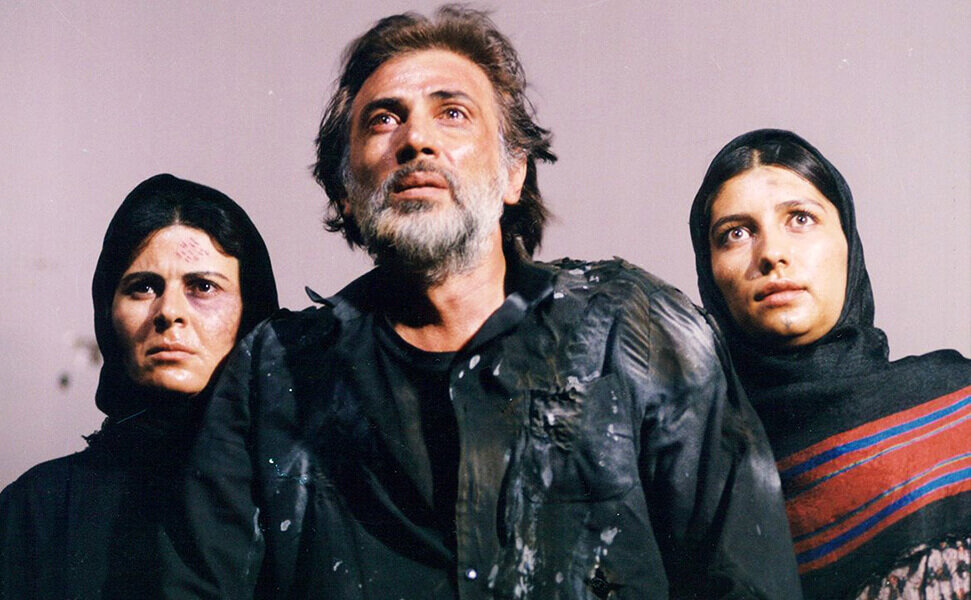Cinema Museum to show the restored version of Kimiai’s “Snake's Fang”

TEHRAN-The Cinema Museum of Iran will screen the restored version of Masoud Kimiai’s 1990 war film “Snake’s Fang” on Wednesday.
Modified and restored by the National Film Archives of Iran, the 110-minute movie will be shown at 4 p.m. at the Ferdown Hall of the museum, ILNA reported on Monday.
The film screening will be followed by a review session with the presence of film critics Javad Toosi and Shapour Azimi, who will discuss “Snake’s Fang” as well as Kimiai’s filmmaking style.
Reza, the veteran worker of a print house whose sight is adversely affected because of his job, loses his mother. Finding the gloom reigning over the home beyond bearing, he departs to overcome his sorrows. He ends up at a hostel where he shares his room with a southern guy called Ahmad who has a group of orphan war-stricken children under his wing. They become friends until Reza discovers the true nature of his friend's deals.
Iraq drew Iran into a long and destructive eight-year war in which Iran justifiably defended its borders and people. During that war, corruption and extortion flourished and a black market developed. This film takes place after that war and deals with the loneliness - which ensued as the Iranians - including many orphans - tried to build a new life in the post-war chaos.
The cast includes Golchehre Sajadieh, Ahmad Najafi, Faramarz Sadighi, Hassan Rafi'I, Fariba Kowsari, Jalal Moghadam, Nosratollah Karimi, Saeid Pirdoost, Mohammad Vali Ahmadloo, Shahed Ahmadloo, Hossein Memarzadeh, and Nersi Gorgia among others.
“Snake’s Fang” was entered into the 41st Berlin International Film Festival in 1991, where it was nominated for the Golden Bear for Best Picture and won an Honorable Mention for the director. It also grabbed the Special Jury Prize at the Montreal World Film Festival in 1992.
This was not his sole international prize for Kimiai. At the Cairo International Film Festival in 1979, he received from the International Catholic Organization for Cinema (OCIC), the OCIC Prize for his film “The Journey of the Stone”. The international OCIC jury gave its award to this film because it denounced the exploitation of mankind by mankind and called for a more just social order. About 30 years later, “Crime” won Crystal Simorgh for Best Film at the Fajr International Film Festival in 2011.
Masoud Kimiai, 82, is a veteran director, screenwriter, and producer, who is considered as one of the pioneers of Iranian New Wave.
With his second film, “Qeysar” (1969), he and Dariush Mehrjui with the film “The Cow” caused a historical change in the Iranian film industry. “Qeysar” became a great success at the box office and opened the way for young, talented filmmakers who never had a chance in the industry before.
His films deal with people at the margin of society with his anti-hero characters that die at the end. He usually writes his screenplays, using slang dialogue based on ordinary traditional people's dialect.
During 55 years of professional career, Kimiai has made over 30 films, winning 10 local and international awards for them. He has also penned two novels and a poetry book.
Kimiai has also supported the careers of other award-winning filmmakers in Iran such as Abbas Kiarostami and Asghar Farhadi who worked with him as assistant director and title sequence designer.
SS/
